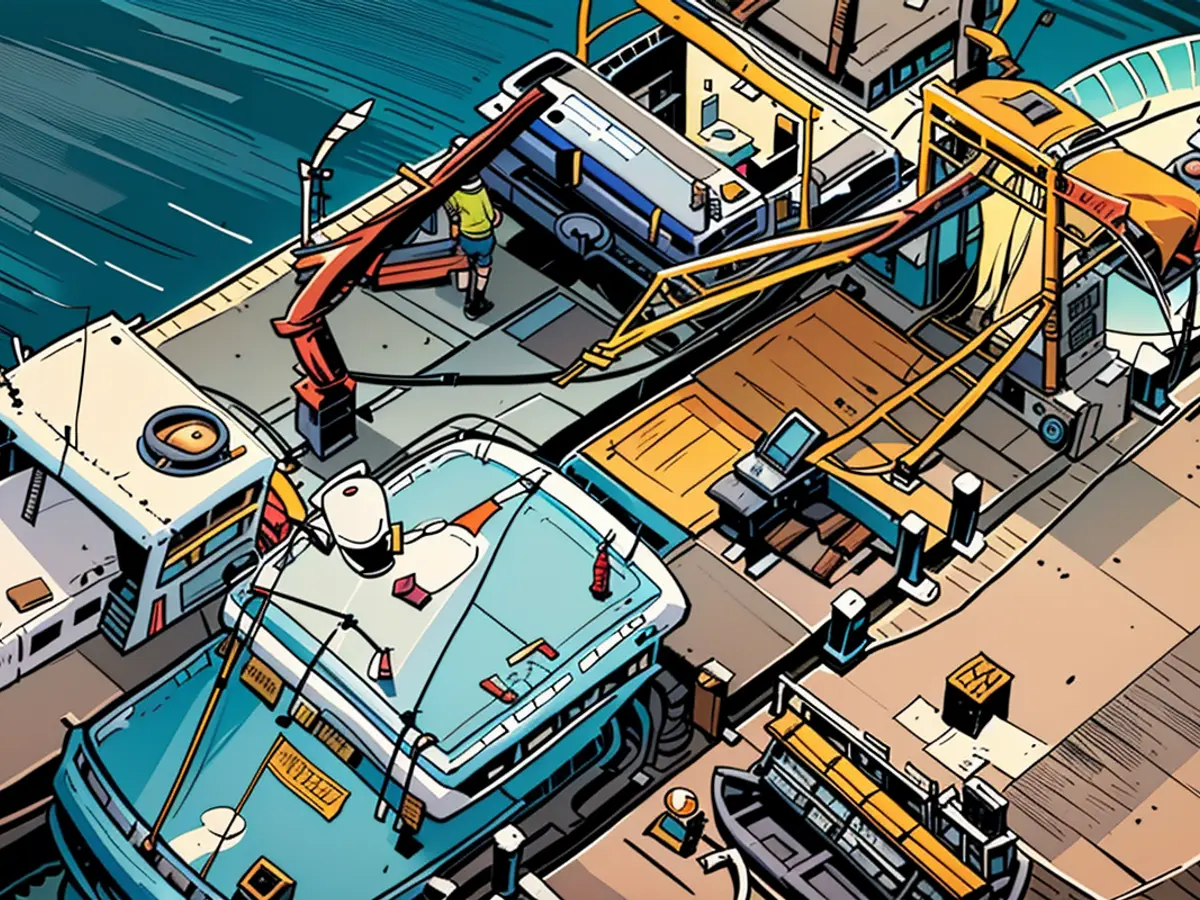Fishery - Mussel farmers look positively towards the start of the season
Shellfish farmers can look forward to top quality in this season for Sylter clams. "Already in the initial sampling, we found up to 39 percent meat content in our Sylter clams," said the chairman of the Schleswig-holsteinish clam fishermen's producers' organization, Heinz Maurus. This is an absolute top value and testifies to the excellent quality of this year's harvest. The producers have not yet made a price forecast.
On average, around 12,000 tons were landed in the past years. This year, 15,000 tons are expected, as the second chairman of the producers' organization, Torben Wagner, said. Wagner is also the owner of one of the seven active mussel farming businesses. He and his colleagues operate seven mussel dredgers and two special ships for mussel cultivation installations with a total of 42 crew members on board.
In the largest part of the Wattenmeer Sea, Muscheln (Mussels) cannot be fished
Clam fishers work directly in the Nationalpark Schleswig-Holsteinisches Wattenmeer. This brings some restrictions with it. The Nationalpark covers an area of around 441,000 hectares. According to the clam fishers, 87 percent of this area is free of mussel fishing and mussel cultivation industry. Around 13 percent could therefore be used by the mussel farmers. However, the mussel farmers actually used only approximately 0.39 percent of the Nationalpark's area, said Maurus.
Mussel farmers face challenges
Despite the good prospects for the 2024 season, mussel farmers look at the future with concerns due to challenging framework conditions. "It could all be so nice," said Maurus. "But our harbor is falling apart." For example, there are problems with unloading the cargo due to decaying and partially closed harbor facilities. He demands politics to finally take care of the harbor, which is also important for tourism reasons for Hoernum and the island.
The increasing sedimentation of mussel cultivation areas also makes cultivation and harvesting difficult or impossible, said Maurus.
Concerns are also raised by the new reef classification from 2022, through which the economic area is restricted by up to 2,000 hectares due to the taboo on mussel fishing. Since mussel fishing is prohibited on reefs, Maurus called for reasonable framework conditions and planning security for the future to ensure that the currently practiced aquaculture can be secured and further developed.
Maurus: Need planning security
Reasonable framework conditions and planning security for the future are needed to ensure production capacity and to secure and further develop the currently practiced aquaculture, said Maurus.
In the Lower Saxony Wadden Sea, there are also mussel fishermen. However, this fishing sector plays a subordinate role there. There are only three remaining businesses in Greetsiel, Norddeich, and Hooksiel. They cultivate a cultural area of 1,300 hectares between the Ems and Jade with a maximum of five cutters. In comparison to the landing quantities in Schleswig-Holstein, those of the Lower Saxony mussel fishermen are significantly lower: From 2010 to 2020, the amount was on average 2,841 tonnes. The situation was even worse in the past three years with an average of 1,284 tonnes. According to mussel farmers, the main problems for the mussel cultures are too much silt and dredging waste, which is moved due to annual millions of cubic meters of sand dredging from rivers, harbors, and for the construction of LNG terminals along the coast. Since several million cubic meters of sand are dredged up every year, a lot of sediment is stirred up in the water.
- The quality of mussels from the North Sea, specifically from the region of Sylt in Germany, is highly anticipated for this season, with some shellfish farmers expecting top yields due to their high meat content.
- Despite the positive outlook for mussel farming in Schleswig-Holstein, there are concerns about the future of the industry due to challenging framework conditions, such as decaying harbor facilities and restrictions on mussel fishing areas.
- In the future, mussel farmers in Schleswig-Holstein are calling for reasonable planning security and framework conditions to ensure the continuity of their aquaculture practices and secure the future of the industry.
- In contrast, mussel fishermen in the Lower Saxony Wadden Sea face challenges with too much silt and dredging waste, which is moved due to annual sand dredging activities, making it difficult to cultivate and harvest mussels effectively.








